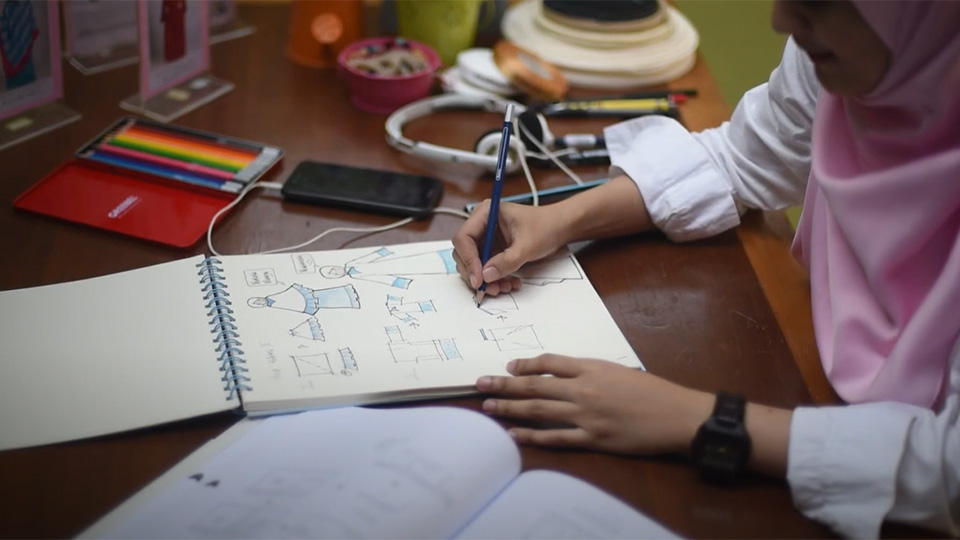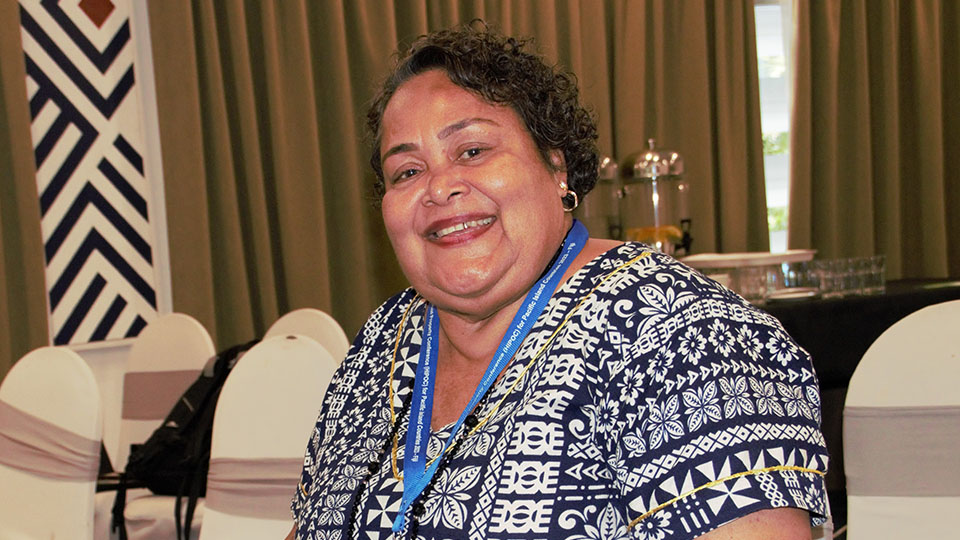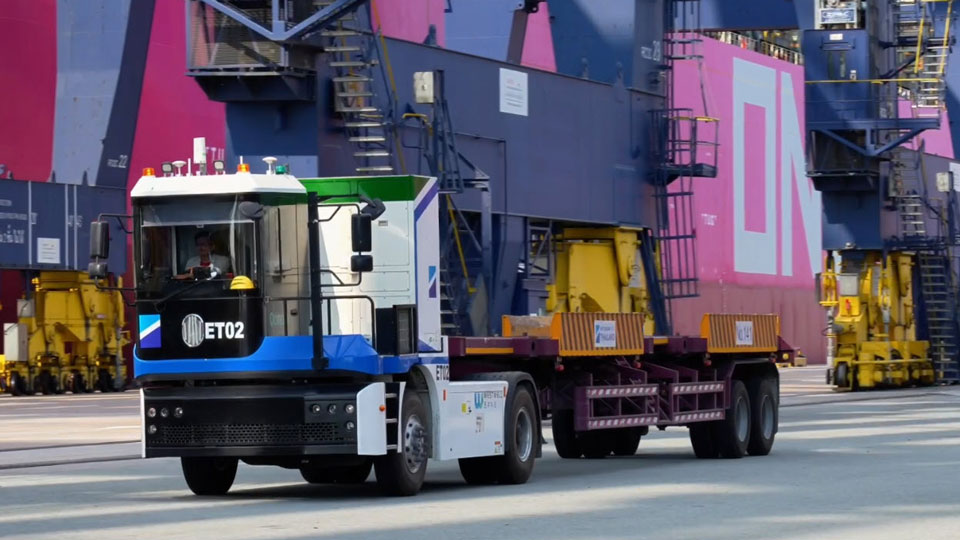Agroselect Semences Research and Development Center, Moldova
Achieving independence in 1991, the Republic of Moldova (Moldova) is a young country but already has a well developed intellectual property (IP) system. Landlocked and bordering Romania to the west and the Republic of the Ukraine (Ukraine) to the north, east, and south, a moderate climate and good farmland contribute to the important role the agricultural industry plays in the country’s economy.
With significant agricultural productivity throughout the country, three IP instruments have proven to be particularly beneficial for the Moldovan economy: appellations of origin (AO), geographical indications (GI) and plant breeders’ rights (PBR). Thanks to these instruments and the regional climate, a number of successful agricultural companies have emerged since Moldova’s independence.
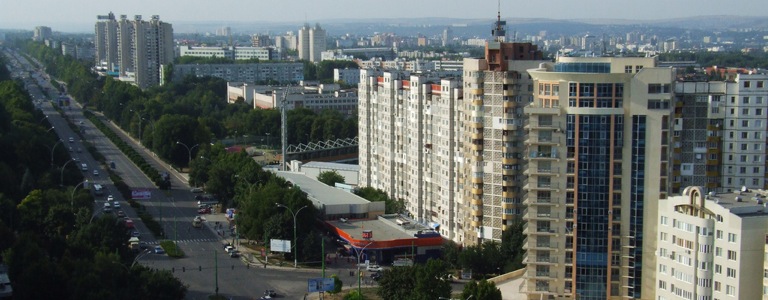
One such company is Agroselect Semences Research and Development Center (Agroselect). Formed in 2000 and based in the capital city of Chișinău, the small and medium enterprise (SME) was the first private company in Moldova to breed, process, and cultivate seeds for the European market. Part of Agro Management Group (AMG), an agricultural conglomerate that was formed in 1996 and has become one of the largest in Moldova, Agroselect has combined its technical expertise with the IP system to utilize the qualities of the local environment and become one of the most successful breeders of new seed varieties in the country.
Goods with specific geographical origin
Moldova enjoys a temperate continental climate with rich, fertile soil, and this has helped the country develop its agricultural industry. Indeed, under Moldova’s previous political status it was known as the “orchard of the Soviet Union,” which emphasizes the strong agricultural role the country plays in the region. With strong traditions in wine production and other products such as fruits, nuts, and dairy, the country has vast production potential. Breeding new seeds is one area in which this potential has been realized, and it is due primarily to the agricultural traditions of the people and geographical features of the country.
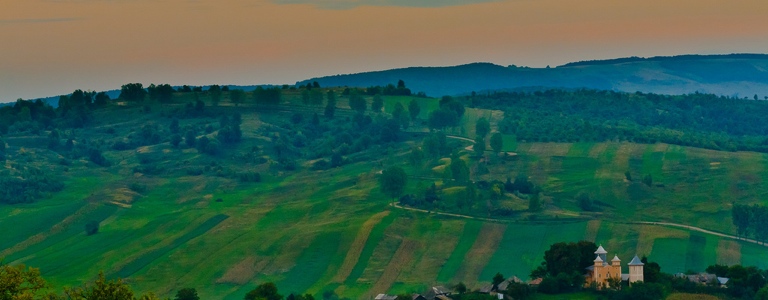
Encompassing an area of 33,843 square kilometers (km), Moldova has over 3,000 rivers and streams, 10 of which are longer than 100 km, and over 2,200 natural water springs. The soil in the country is some of the most fertile in the region, which consists of over 745 varieties, including sedimentary rocks rich in minerals and nutrients. Combined with a moderate continental climate that is characterized by short, mild winters, between 500 and 650 millimeters in annual precipitation, and a long frost-free period, Moldova is rich in botanical diversity, having over 5,000 species of wild growing plants.
The topography predominantly falls in three categories: gently rolling steppes (grassland), forest steppes (grassland interspersed with forests), and large forests. Elevation levels are lower in the north and gradually increase in the south. With the highest point in Moldova only 430 meters above sea level, the absence of mountainous terrain provides large expanses of arable land. With an abundance of fresh water and mineral fertilizers such as phosphorites, lignite, and gypsum, the country is well suited for the cultivation of a wide variety of agricultural products.
These favorable conditions have resulted in over 50 percent of the land in the country put to arable use, making for an environment that is conducive to the successful development of new plant varieties. Following privatization of the country’s economy in the early 1990s, Agroselect took advantage of Moldova’s climate, natural resources, and agricultural traditions and went to work to create new plant varieties, particularly focusing on developing seeds with improved characteristics, such as higher resistance to disease and a greater crop yield.
Research and development
Agroselect’s dedicated research and development (R&D) facility is in Nicoreni, a village in the Drochia district in the northern part of Moldova. From this center the company focuses on developing new seeds in four categories: hybrid sunflower, hybrid corn, rapeseed (a source of vegetable oil), and wheat. Sunflower seeds make up the largest portion of the SME’s R&D efforts, in which it breeds, cultivates, and processes hybrid seeds for the domestic and international market. Moldova was an agricultural exporter in Europe for centuries, and the scientists working at Agroselect are keenly aware of the qualities that are desirable in seeds to be used in the continent.
The company therefore first focused on breeding hybrid seeds that were robust and resistant to destructive forces such as drought and disease, which would allow the seeds to flourish in a wide range of environmental conditions. Procuring modern technology and equipment used in the hybridization process, Agroselect embarked on a project in which it analyzed approximately 1,000 different hybrid combinations and over 30,000 crossings of self-pollinating breeds in one year.
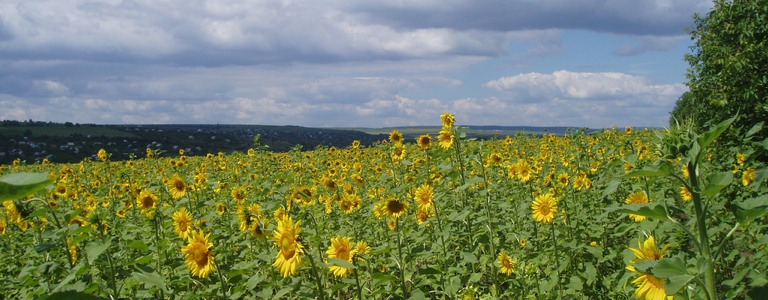
From this intensive R&D program came a number of hybrid sunflower seeds, such as those marketed by the company under the names of Drofa, Xenia, and Vitalia. These new breeds have unique characteristics including genetic resistance to mildew, increased resistance to mold, earlier ripening, and a high concentration of oil. Engineered to meet the specific needs of the region, these new sunflower varieties saw rapid adoption within Moldova and in neighboring countries such as Ukraine and the Russian Federation (Russia).
Continuing at this pace, Agroselect has developed over 15 unique varieties of hybrid sunflower seeds. The company soon expanded its R&D to other types of crops, and as of 2014 developed 6 hybrid corn seed varieties, 3 rapeseed varieties, and 2 wheat seed varieties, all of which provide high crop yields even in harsh climactic conditions. In order to maintain this level of R&D success, the SME places importance on continual professional training. Programs such as seminars, in-house training, internships at relevant organizations internationally, and computerized education techniques have allowed Agroselect’s R&D initiatives to continue in a positive direction.
Partnerships
To effectively commercialize their new plant varieties internationally, Agroselect has entered into a number of partnerships, each of which serves a specific purpose for the company. Helping facilitate expansion into more European countries, the SME has a partnership with Caussade Semences, a large seed production company based in the French Republic. In the United States of America, Chemtura Agrosolutions provides Agroselect with high quality materials for the development and production of new seed varieties, such as disinfectants, dyes, polymers, and fungicides. Novi Sad Institute of Field and Vegetable Crops, in the Republic of Serbia, assists Agroselect in cultivation and R&D techniques related to seed development.
The SME has also partnered with the Food and Agriculture Organization of the United Nations for technical assistance in the development of new sunflower seed varieties. Lastly, the company has an R&D partnership with the Fundulea National Institute for Agricultural Research and Development in Romania. With the help of these partnerships, Agroselect has been able to remain on an innovative path of new seed variety development.
Plant breeders’ rights
Immediately its economic and political transformation in the early 1990s, Moldova did not have an IP system. Recognizing the important role that IP could play in the development of the country’s economy, the Moldovan government went quickly to work to create a robust IP system. The first steps taken were on 25 December 1991, when Moldova joined the World Intellectual Property Organization (WIPO) and the Paris Convention for the Protection of Industrial Property of 20 March 1883. Shortly thereafter, the country proceeded to create its own legal IP framework.
Since agriculture makes up such an important part of the Moldovan economy (12 percent of the country’s GDP according to the World Bank, 2013), developing strong IP protection for this industry was a major achievement for the country. Starting in 1993, a series of legislation saw Moldova introduce IP protection for the agricultural sector in the form of AOs, GIs, and PBRs. With this new framework, the country’s abundant natural resources and agricultural products, including honey, dairy, wine, and new plant varieties such as those that Agroselect develops, can be protected.
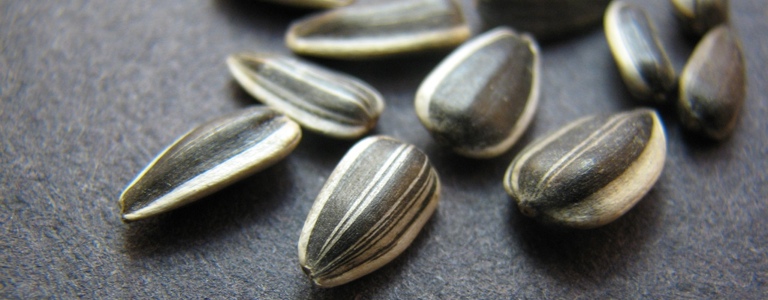
In 1998, Moldova enhanced its commitment to PBRs by joining the International Union for the Protection of New Varieties of Plants (UPOV), an international organization that promotes an effective system of plant variety protection. Registration of new plant varieties was formally adopted into Moldovan law in February 2008. Plant breeders (or their successor in title) make applications to the State Agency on Intellectual Property of the Republic of Moldova (AGEPI). Upon approval, registration of the new variety is made with the Ministry of Agriculture and Food Industry of the Republic of Moldova (MAIA). New plant varieties of trees, fruit trees, and grapevines are protected for up to 30 years, while all other species are protected up to 25 years. By registering new plant varieties with AGEPI, breeders enjoy exclusive rights to the protected plant variety, which bring direct and indirect benefits.
Directly, breeders retain the right to exclusively produce or reproduce the variety; the right to legal recourse in case of infringement; the right to sell, export, or import the variety; and revenue from sold or licensed varieties. Indirectly, the exclusive rights help the breeder increase cooperation with farmers and growers; provide enhanced local, national, and international business opportunities; and, through profit received from the sale and/or licensing of protected varieties, facilitates the development of new varieties.
With a strong IP legal framework in place, Agroselect has been able to thrive in developing new plant varieties. As of 2014, the company has 8 new varieties protected through registrations with MAIA. Namely, the sunflower hybrids Dacia (#0282550; 2014), Codru (#0282551; 2014), Doina(#0282765; 2014), Drofa (#0281234; 2007), Xenia (#0281235; 2007), Favorit (#0280694; 1999), Performer (#0280726; 2003), and Valentino (#0280708; 2002). In addition, in 2013 the company received protection for 5 of its plant varieties in Russia with the State Commission of the Russian Federation for Selection Achievements Test and Protection, the body responsible for protection of new plant varieties in the country. These include the sunflower hybrids Dacia (#54700), Zimbru (#54699), Codru (#54697), Talmaz (#54698), and Performer (#55156).
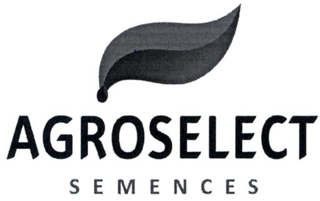
Trademarks and domain names
Beyond protecting its new plant varieties, Agroselect has further utilized the IP system by registering a trademark for its company name. An application for the trademark – Agroselect Semences – was made with AGEPI in May 2011 and was subsequently registered in August 2012. The SME is also aware of the importance in maintaining a presence on the Internet and is the owner of domain names. In addition to the company’s main corporate domain name – agroselect.md – it also owns agroselect.ru for use of the company’s operations in Russia.
With a strong IP portfolio that includes trademarks, PBRs, and domain names, the SME has managed to propel itself to a leading position in the development, production, and sale of new plant varieties in Moldova and countries as near as Ukraine and as far as the Republic of Uzbekistan (Uzbekistan).
Commercialization
As a part of the AMG conglomerate, Agroselect has been able to utilize the resources of its parent company (such as its distribution and logistical network) and combine them with modern technology to successfully commercialize new seed varieties. The process starts at the SME’s R&D center, where researchers work to develop new seeds that meet specific requirements, such as drought or disease resistance. Following the development of a new seed variety, it is cultivated at Agroselect’s various hybridization test sites. The company has over 2,000 hectares of land in 35 different locations throughout Moldova used for cultivation. During this process the SME monitors the new variety to ensure that it contains the desirable traits and meets the standards of the MAIA and the International Seed Testing Association (ISTA), an organization that develops internationally recognized standards for testing seeds. Agroselect’s developing, testing, and production processes enjoy certification from the MAIA and ISTA.
Once a new variety has successfully passed all testing and certification requirements, the seeds are harvested and transported to Agroselect’s factories where they are cleaned, sorted, and calibrated with modern equipment. Subsequently the seeds undergo treatment with disinfectants (such as fungicides and insecticides) before they are finally prepared in packages typically weighing 12 kilograms. The seeds are then transported for sale in Moldova and internationally, in countries including Russia, Ukraine, the Republic of Kyrgyzstan, and Uzbekistan. In most countries, Agroselect’s products are sold directly to customers, which can include individual farmers and agricultural companies. In some countries, such as Russia, the company operates directly under its own name. In others, such as Ukraine, AMG opens an official representative and distributor for Agroselect’s products.
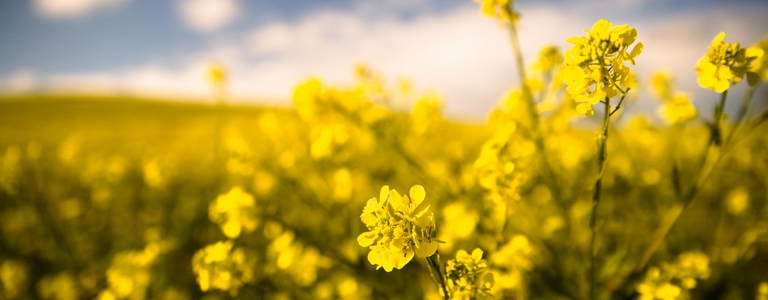
Business results
With the backing of one of Moldova’s largest conglomerates (AMG), a strong IP framework, and a proven track record of developing new seeds, Agroselect has become an industry leader in the region. Indeed, the company was the first such entity to develop new seed varieties in Moldova and has grown into one of the largest. In 2007, demand for Agroselect’s products resulted in an increased production capacity to 1,500 metric tons per season. By 2014, the company sold new seed varieties to over 1,400 customers worldwide. Through the SME’s partnerships and expansive commercialization activities, clients at home in Moldova and internationally have been able to enjoy the benefits of Agroselect’s robust seed varieties.
Varieties of growth
In the diverse ecosystems that make up our planet, what flourishes in one plot of soil might not do so well in another. From small cooperatives to international companies, farmers are acutely aware of the necessity of developing new plant varieties that are suited to local environmental conditions. The ability and know-how of plant breeders therefore becomes ever more important. With the development of a strong IP framework in Moldova, Agroselect is an example of a company that has realized the importance of developing and protecting new varieties to help farmers grow better products and grasp firmly onto their future.

